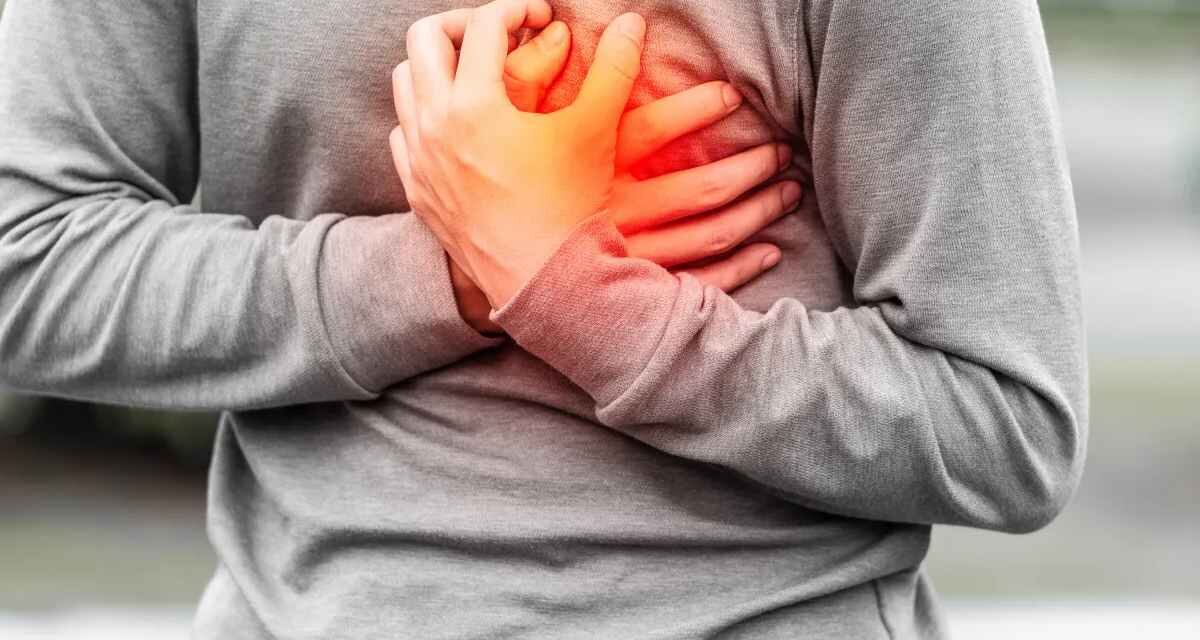Heart attack is the leading cause of death in the United States. Conferring to the Centers for Disease Control and Prevention (CDC), approximately 697,000 deaths occur each year from heart-related causes, including heart attacks and strokes. This accounts for about 1 in 5 deaths. The economic load of heart disease is also enormous, accounting for about $229 billion in healthcare expenses and lost efficiency, the CDC reports. Many of these deaths could be prohibited, and healthcare costs could be reduced with medications and changes in health habits, the CDC notes.
Unfortunately, some heart attack risk factors cannot be changed. For example, the risk of having a heart attack upsurges with age. Rendering to the American Heart Association (AHA), most individuals who die from a heart attack are 65 years or older. Additionally, people with a family history of heart disease are more likely to develop the disease.
Gender is also a risk factor. Men are at higher risk for heart attacks than women, and they also tend to have heart attacks earlier. However, women are more likely to die from a heart attack. African Americans, Mexican Americans, Native Americans, Native Hawaiians, and some Asian Americans are also at higher risk for heart disease. Rendering to the AHA, this is because these collections tend to have advanced rates of risk issues such as high blood pressure, overweightness, and diabetes.
There are also adaptable risk factors, such as smoking, high blood pressure, high cholesterol, and being overheavy or obese, that can make a big difference in your risk for heart disease. The good news is that reducing these underlying heart disease risks can help prevent future heart attacks.
Lifestyle Changes To Prevent Heart Attack
Lifestyle changes are your first line of defence against heart attacks. Most of the significant risk issues for heart disease are connected in some way to your lifestyle, including overweightness, blood pressure, and cholesterol levels.
To reduce your risk of having a heart attack, you can take the following steps:
Quit Smoking
Smoking releases harmful chemicals into the bloodstream and is a significant danger factor for coronary heart disease (CHD), which causes fatty deposits to form in the arteries.
Even if you already have heart disease, you are more likely to have a heart attack and die from one if you smoke than if you don’t.
If you have coronary artery illness and smoke, you can intensely reduce your risk of another heart attack and death from cardiovascular disease by quitting. According to the CDC, your heart risk will decline in just one to two years after you quit smoking.
Talk to your doctor about receiving help to quit smoking if you are not sure how to do so successfully.
Increase Your Physical Activity
Exercise is the cornerstone of a heart-healthy lifestyle, and it includes aerobic and strength training.
Rendering to the U.S. Department of Health and Human Services’ Physical Activity Rules for Americans, 150 minutes of moderate-intensity aerobic exercise should be done each week, including activities such as brisk walking.
Alternatively, you can do 75 minutes of intense aerobic exercise, such as running.
In addition, you should perform muscle-strengthening workouts at least two times a week. These workouts should involve all major muscle groups: legs, arms, chest, shoulders, stomach, hips and back.
9 Tips For Diet And Heart Attack Prevention
What and how much you eat can play an enormous role in your risk of heart attack. Follow these steps to achieve a heart-healthy diet:
1. Eat Lots Of Fruits And Vegetables.
Try to eat at least five platefuls of fruits and vegetables every day.
It’s a good idea to include a variety of types and colours of berries and vegetables in your diet.
2. Eat cereals and legumes rich in fibre.
Good-grain foods include oatmeal, brown rice, whole-grain tortillas, and bread.
Legumes contain dried beans, chickpeas, lentils, and black-eyed peas.
3. Choose Lean Meats And Fatty Fish.
Healthier meat and poultry options include 95 per cent lean ground beef, pork tenderloin, and fresh skinless chicken or turkey.
Fatty fish are ironic in omega-3 fatty acids and include salmon, tuna, and trout.
4. Get Healthy Fats From Nuts, Seeds And Oils.
Eating healthy monounsaturated and polyunsaturated fats may reduce your risk of heart disease.
Good sources of these fats include nuts (most types of nuts), peanuts, seeds, and avocados, as well as canola, olive, safflower, and sunflower oil.
5. Limit Salt And Sodium Intake.
The American Heart Association mentions that most Americans eat no additional than 1,500 mg of sodium per day for optimal heart health.
The largest source of sodium in most people’s diets is processed foods. Soups, sauces, cold cuts, frozen dinners, packaged snacks, and canned loaves of bread are often high in salt.
6. Reduce Your Consumption Of Unhealthy Fats.
Drenched and trans fats should be limited in your diet.
Sources of saturated fats include fatty meats and poultry, full-fat dairy products, and coconut and palm oils.
Products containing trans fats are made with partly hydrogenated oil, which should be avoided whenever possible. This element is often found in packed desserts and baked goods, microwave popcorn, icy pizza, stick margarine and coffee creamer.
7. Limit Added Sugar.
Added sugars come in many forms, such as brown sugar, steady or high-fructose corn syrup, sucrose, fructose, glucose, honey, and maple syrup.
Sugar-sweetened beverages and packaged snacks, baked goods, and candy are the leading sources of added sugars in the United States.
8. Drink In Moderation, If At All.
According to the CDC, men should have no more than two drinks a day, and women should have no more than one.
A typical serving consists of 12 grains of beer, 5 grains of wine, or 1.5 grains of liquor (straight or mixed).
9. Watch Your Calories
You should eat the correct amount of food to uphold a healthy body weight. This will be contingent on your age, sex, and activity level, among other factor.
Choosing lesser portions and eating slowly can help you reduce calorie intake and uphold a hale and hearty mass.
Medicines To Prevent Heart Attack.
Depending on your medical past, your doctor may also mention certain medications to reduce your risk of heart attack.
For sample, if you have high cholesterol, your doctor may prescribe a statin to help lower the levels of LDL (“bad”) cholesterol and triglycerides in your blood, which can decrease your risk of atherosclerosis.
Medicines such as angiotensin-converting enzyme (ACE) inhibitors, diuretics, and beta-blockers may be prescribed to treat high blood pressure.





